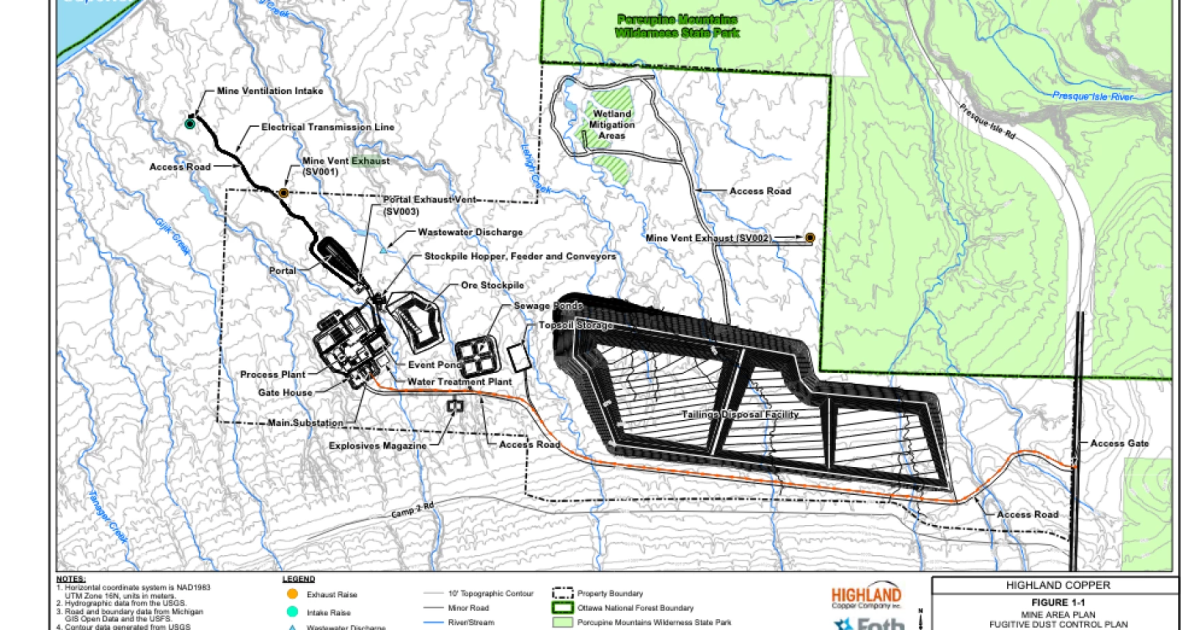Michigan House Backs Controversial Copper Mine Despite Environmental Concerns
Michigan’s Upper Peninsula is at the center of a heated debate as the state’s House Appropriations Committee has thrown its support behind a $50 million grant for the construction of the Copperwood Mine by Canadian company Highland Copper. The controversial project, set to be built underground near Lake Superior, Porcupine Mountains Wilderness State Park, and the North Country Trail in Gogebic County, has raised concerns about its potential impact on the region’s pristine natural environment.
The grant, which is still pending approval from the state Senate Appropriations Committee, is intended for infrastructure improvements necessary for the mine site, such as transportation access, wastewater infrastructure, groundwater analyses, and efforts to enhance cellular and broadband internet access for the area. The mine’s expected lifespan is approximately 11 years, with projections indicating it could generate over $120 million in tax revenue for the state.
Despite opposition from environmentalists and indigenous groups, who fear the risk of mine waste contaminating Lake Superior, proponents of the project argue that it could provide a much-needed economic boost to the struggling rural economy of the Upper Peninsula. Marty Fittante, CEO of InvestUP, emphasized the importance of creating opportunities for residents to thrive in the region.
One of the key motivations behind the push for the Copperwood Mine is the global demand for copper, a vital component in renewable energy infrastructure. With nearly all necessary permits in place and early construction preparations completed, the project is moving forward, though public concerns about its environmental impact persist.
As the grant funding awaits approval from the state Senate Appropriations Committee, the future of the Copperwood Mine hangs in the balance, reflecting the ongoing tension between economic development and environmental conservation in Michigan’s Upper Peninsula.






